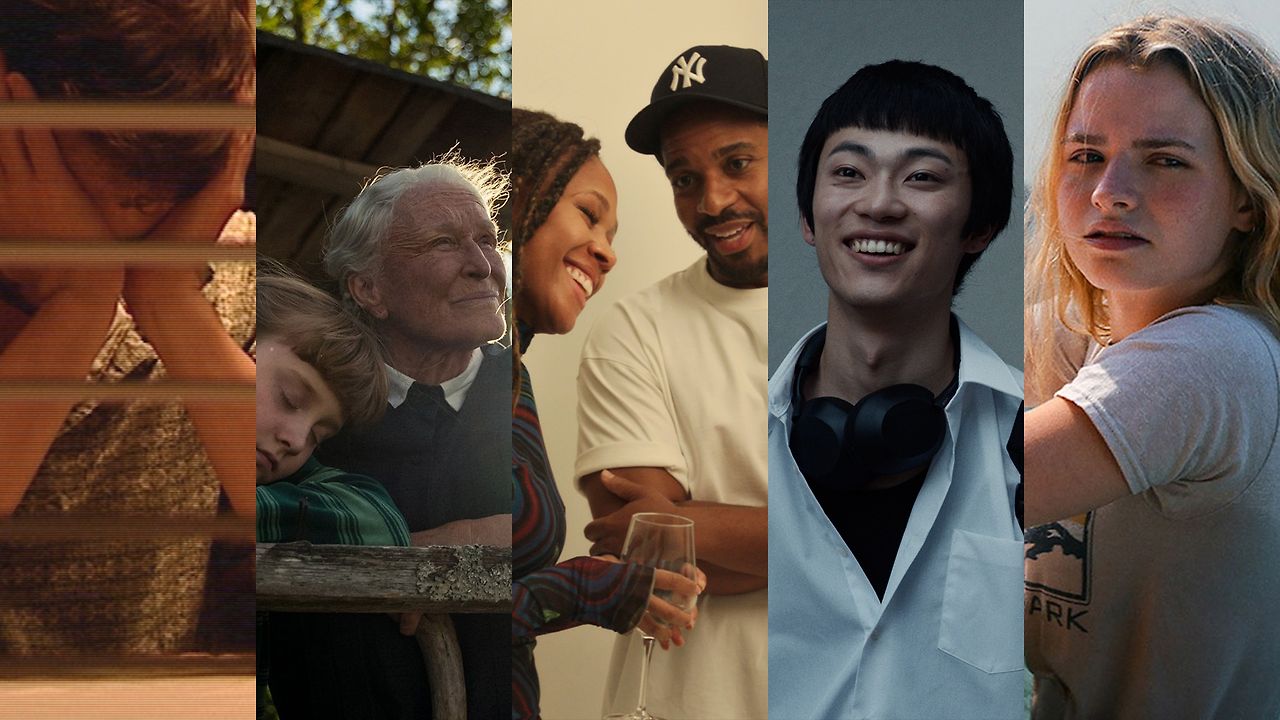PLOT: The Texas Chain Saw Massacre’s impact on 5 artists – Patton Oswalt, Takashi Miike, Alexandra Heller-Nicholas, Stephen King, Karyn Kusama – through interviews, outtakes, exploring how it shaped their art, psyche from childhood trauma.
REVIEW: There are few films in the horror genre that have had the impact of Tobe Hooper’s Texas Chainsaw Massacre. The 1974 classic has provided so much inspiration for generation after generation of filmmakers and it’s no wonder that it’s still talked about more than 50 years later. Chain Reactions looks at how the film influenced five specific artists, while also showing outtakes from the original film. It’s a bit different from some of the other documentaries focused on a singular film, as it’s more about the film’s impact on individuals versus a behind the scenes deep dive.
The structure of Chain Reactions is pretty unique, in that it’s split into chapters, with each chapter being focused on a different interview subject. Patton Oswalt, Takashi Miike, Stephen King, Alexandra Heller-Nicholas, and Karyn Kusama all have their own segments and they’re able to share the impact that TCM had on them. The King segment feels like it will get the most attention, as he himself has so much impact on the horror genre. The other’s feel a bit more loosely connected and feel a bit more broad in their connections to TCM. King actually makes a ton of salient points and makes specific connections with Hooper’s film and unexpected films it inspired. I love Patton Oswalt, but it gets to the point where you’re just hearing a fan talk about their love for the film versus them actually taking part in a ripple effect that affects pop culture.
Karyun Kusama gives some great takes as to why TCM is as brilliant as it is, as she breaks down why specific shots are so expertly crafted. She gets into why the film made the impact that it has, versus going for more personal anecdotes, and Americana at its roots. It honestly gave me more appreciation for the film, which is exactly what this kind of documentary should be doing. This also taught me that I could listen to her talk about cinema for an entire movie, as she’s clearly a great orator who knows her stuff.
Texas Chainsaw Massacre is more reliant on its viewing experience than damn near any other film out there. I would argue that the lower quality you see it in, the more impactful it is. It’s why I’ve found myself a bit resistant to the re-release and 4K restoration of the film. There’s just something about seeing the overexposed image bouncing around with scratches aplenty and a scratchy mono track. So it’s nice to see that properly represented in Chain Reactions. On the technical side, the interviews are well shot and all of the footage is presented in a concise way. I did find it hilarious that they decided to do a split diopter shot between King and

Admittedly, the film can drag at points, as it’s hard to keep so many different people on track, no matter how influenced they were by the subject at hand. There are some asides about Charlie Chaplin’s City Lights or Picnic at Hanging Rock that are only loosely connected and would have been cut in a doc featuring more interviews. Because of that, there are times where the narrative doesn’t feel quite as concise as it seems like it should be. But, again, I think a lot of that just has to do with the decision to make this simply framed around these five artists and their experience with TCM.
I think that if you go into this with the right expectations, you’ll have a fun time. As it feels more like a YouTube dissection versus a hardcore deep dive into the film or its filmmakers. That’s not a slight, as many of those types of videos can be very entertaining. But some of the interview subjects here can be a bit bland and drag the film a bit. Thankfully, the outtakes from TCM and some truly insightful moments with King and Miike make it worth a viewing, especially for longtime Texas Chainsaw fans.
CHAIN REACTIONS IS PLAYING IN NEW YORK AND LA ON SEPTEMBER 19TH, AND EXPANDED NATIONWIDE ON SEPTEMBER 26TH.



![17th Sep: Mobius (2025), 16 Episodes [TV-14] (6/10)](https://occ-0-953-999.1.nflxso.net/dnm/api/v6/Qs00mKCpRvrkl3HZAN5KwEL1kpE/AAAABcTMVkrNeMRGM5ZPylWDYeaZnB_mgvmuWvGonp97gUffOOIqfNUAe3QwkWMJcoq8iK8wVYonR5c5p1l74XCtC6mX5CMRcBTweKU16rCearSAgZVzaSkGkF2U7Gyr6rS_VahLPFFlPT49GaEeTRvJ82m251z_ISmlqvpmEwhQFrOTcmfLzBCBwnmx8az7-9V35I8N_GDAtPIEnqp2sj0qCNRvBs-j5QYSTtFQJYEsk3r1fwXHI8HSmdwcbwFaTJkxv0OTxS9X_Hnm3eJbXwc0hdLfyQzhjQY0IhCZZyVPpDlI9XJDLnd4Erw3RcK0ug.jpg?r=dca)












![17th Sep: Geostorm (2017), 1hr 49m [PG-13] – Streaming Again (5.7/10)](https://occ-0-953-999.1.nflxso.net/dnm/api/v6/Qs00mKCpRvrkl3HZAN5KwEL1kpE/AAAABRPnxmEGFn-LMpae78qEaD-yUTlSS1eBGCcLDVhGPkn_q5pwPOMCgp4ZL0I0XagPKB5NBVPwhmrHadRtfvnWGHREPXjb3sSvsxF2.jpg?r=8a0)